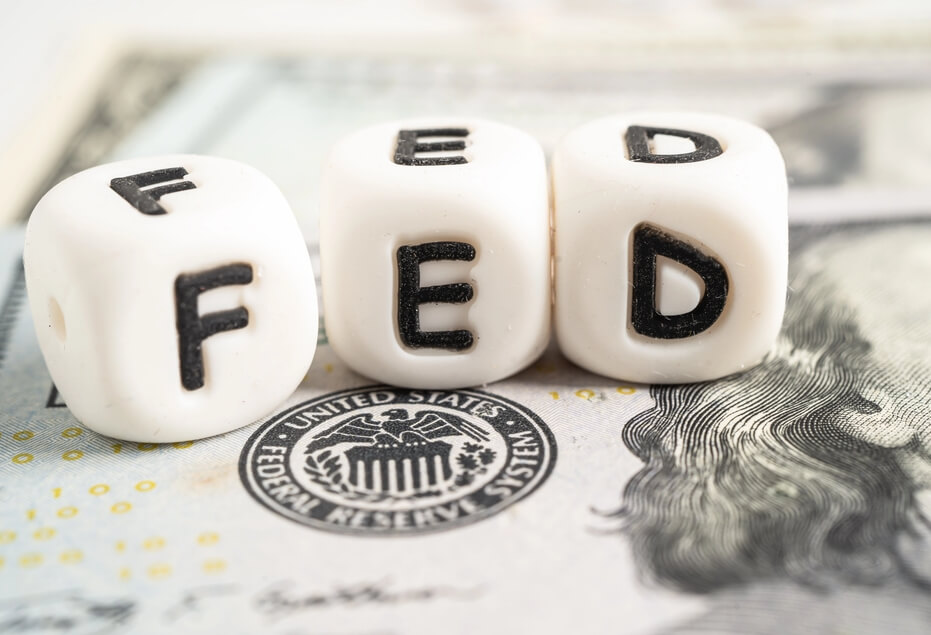Stephen Miran and the “MAGA-ization” of the Fed: Mar-a-Lago Architect, Crypto Advocate, and Fed Reformer
- Silver Price Forecast: XAG/USD surges to record high above $56 amid bullish momentum
- Fed Chair Candidate: What Would a Hassett Nomination Mean for U.S. Stocks?
- After the Crypto Crash, Is an Altcoin Season Looming Post-Liquidation?
- The 2026 Fed Consensus Debate: Not Hassett, It’s About Whether Powell Stays or Goes
- U.S. PCE and 'Mini Jobs' Data in Focus as Salesforce (CRM) and Snowflake (SNOW) Report Earnings 【The week ahead】
- AUD/USD holds steady below 0.6550 as traders await Australian GDP release

TradingKey - In a move that could reshape the Federal Reserve’s policy direction, President Donald Trump has nominated Stephen Miran, current Chair of the White House Council of Economic Advisers, to fill the vacant seat left by Governor Adriana Kugler. Miran’s appointment — even if temporary — has sparked immediate market reactions and raised concerns about the “MAGA-ization” of the Fed, given his deep alignment with Trump’s economic agenda.
On Thursday, August 7, Trump announced the nomination, praising Miran:
“He has been with me from the beginning of my Second Term, and his expertise in the World of Economics is unparalleled — He will do an outstanding job.”
Miran is set to serve only until January 2026, with Trump saying he continues to seek a permanent replacement.
Despite the interim nature of the role, financial markets reacted swiftly: the U.S. Dollar Index (DXY) dropped sharply, erasing earlier gains and falling below 98, reflecting concerns over monetary policy politicization.
The Case for a “MAGA Fed”
Miran’s policy views align closely with Trump’s on three key fronts: weak-dollar advocacy, crypto openness, and structural Fed reform.
1. Architect of the Mar-a-Lago Accord — A Weak Dollar Champion
Miran is a key architect of the Mar-a-Lago Accord, a controversial economic framework outlined in his November 2024 paper: “A User’s Guide to Restructuring the Global Trading System.”
He argues that persistent trade deficits have weakened U.S. manufacturing and national competitiveness. His solution:
Implement broad-based tariffs to rebalance trade
Allow the dollar to weaken to boost export competitiveness
This vision aligns perfectly with Trump’s pledge to revive American industry and reduce reliance on foreign supply chains.
2. Crypto-Friendly Innovator
Miran has long supported financial innovation, including cryptocurrencies. He has questioned whether much of recent innovation — from Uber to Airbnb to crypto — exists primarily to circumvent outdated regulations.
In late 2023, after Binance’s CEO pleaded guilty, Miran stated:
“While binance did some evil shit (helping finance Iran, Hamas), maybe we should actually streamline a lot of regulations.”
His background reinforces this stance:
Former senior strategist at Hudson Bay Capital, which participated in FTX bankruptcy claims trading
Held roles at the U.S. Treasury Department and Fidelity Investments
These experiences paint him as a pro-innovation, crypto-savvy policymaker — in line with Trump’s push to make the U.S. a leader in digital assets.
3. Fed Critic and Reformer
Miran has been openly critical of the Fed’s current structure and decision-making.
In a 24-page reform proposal co-authored with Treasury aide Dan Katz in March 2024, he blamed the Fed’s policy errors on “groupthink” and mission creep into political domains.
His proposed reforms include:
Separating monetary policy from bank supervision
Giving all 12 Federal Reserve Bank presidents voting rights on the FOMC
Allowing the President to remove any Fed official at will — including regional bank presidents
Such changes would dramatically increase White House influence over monetary policy.
Could Miran Shift the Fed’s Balance?
While Miran’s term may be short, his presence could tip the balance in upcoming FOMC meetings.
Currently, among the seven Fed Governors:
Christopher Waller and Michelle Bowman are openly dovish, having voted for a 25-bp cut in July
Lisa Cook recently suggested the weak jobs report could mark a “turning point” in policy
Integrity Asset Management noted that Miran would add another dovish voice, potentially strengthening the case for rate cuts.
Nomura strategists said Trump’s choice signals a clear pivot toward a more accommodative Fed, warning that weakened central bank independence could fuel dollar selling pressure.
Will He Make the September Meeting?
With Goldman Sachs and others calling for a 50-bp cut in September, Miran’s potential influence is timely. However, his appointment requires Senate confirmation — and the Senate is currently in August recess.
It remains unclear whether he can be confirmed in time to vote at the September FOMC meeting.
Read more
* The content presented above, whether from a third party or not, is considered as general advice only. This article should not be construed as containing investment advice, investment recommendations, an offer of or solicitation for any transactions in financial instruments.

